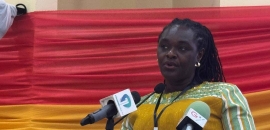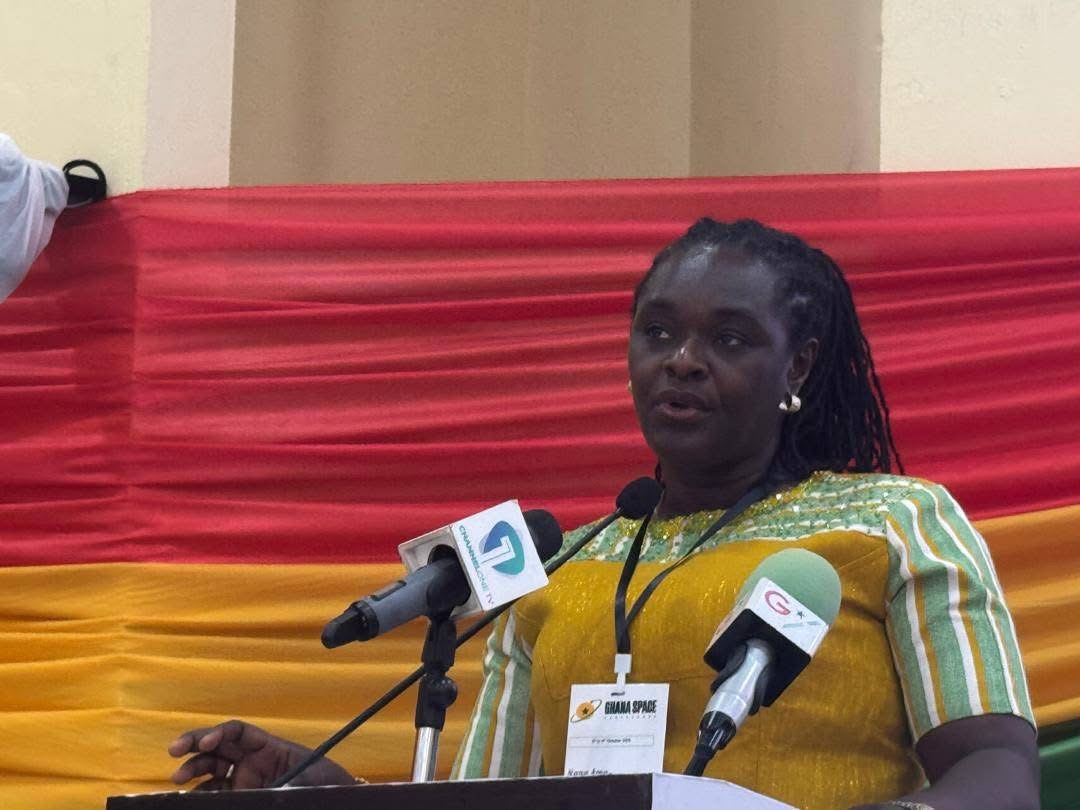
Ghana Must Prioritize Space Science for Agriculture, Mining – EPA
Oct 07, 2025
by Ekow Benyah Oct 07, 2025

October 7, 2025
The Chief Executive Officer of the Environmental Protection Authority, Prof. Nana Ama Browne Klutse, has called on Ghana to intensify its commitment to space science and technology as a critical tool for national development, particularly in the agriculture and mining sectors.
Speaking at the opening ceremony of the maiden Ghana Space Conference at the University of Ghana on Sunday, October 6, 2025, Prof. Klutse underscored the strategic importance of space science applications for addressing challenges facing two critical pillars of the national economy.
She highlighted that the integration of satellite data, remote sensing, and geospatial technologies can significantly enhance environmental monitoring, precision farming, and sustainable mineral exploration. The EPA chief emphasized that both agriculture and mining face mounting challenges due to climate variability, land degradation, and unsustainable resource extraction.
Prof. Klutse drew attention to the rapidly expanding global space economy, which is currently valued at approximately $600 billion and projected to surpass $1.3 trillion within the next decade. She stressed that this exponential growth presents both an economic and strategic opportunity for Ghana to develop local capacity in space technology production, data analytics, and innovation-driven research.
"The global space economy is experiencing unprecedented growth, and Ghana cannot afford to be left behind. We must position ourselves to benefit from this transformation by building local expertise and infrastructure in space science and technology," Prof. Klutse stated.
Her remarks position the EPA as a key advocate for cross-sectoral collaboration in harnessing space technology for national development. She urged academia, government, and private industry to work together to leverage the transformative potential of space science to drive sustainable environmental management and resilient national development.
The maiden Ghana Space Conference brings together scientists, policymakers, researchers, and industry stakeholders to discuss the role of space technology in addressing Ghana's development challenges. The conference is expected to chart a roadmap for Ghana's engagement with space science and technology in the coming years.
Ghana's interest in space technology has been growing, with the country launching its first satellite, GhanaSat-1, in 2017. However, experts have called for more sustained investment and policy support to fully harness the potential of space science for development.
The EPA chief's call comes at a time when many African nations are increasingly recognizing the strategic importance of space technology for addressing climate change, food security, natural resource management, and sustainable development challenges.

Oct 07, 2025

Jan 13, 2025

Mar 09, 2025

Apr 28, 2025

Feb 20, 2025